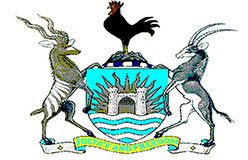By Fanuel Chinowaita

MUTARE – The City of Mutare has rolled out its 2026 budget consultations, inviting residents from all wards to participate in shaping the city’s financial priorities — a process taking place amid proposed tariff hikes across key service sectors.
The meetings, which run from today, the 14th to 25 October 2025, are being held in various community halls and ward clusters across Dangamvura, Chikanga, Hobhouse, Sakubva, Fern Valley, and the City Centre.
Senior council officials — including the Town Clerk, Chamber Secretary, Directors, and Ward Councillors — are leading the discussions to explain expenditure plans and gather citizens’ feedback on the proposed budget.
City officials said the consultations are aimed at deepening transparency, inclusivity, and accountability in local governance under Zimbabwe’s devolution framework.
“We value residents’ input because they are the main stakeholders. Their participation ensures that the budget reflects real community priorities,” said one senior council official.
According to the proposed 2026 tariffs obtained by The Wasu Post, Mutare residents are likely to pay more for essential services such as water, sewerage, refuse collection, housing rentals, and licensing fees. The municipality said the upward adjustments are necessary to counter inflation, rising fuel and electricity costs, and the need to rehabilitate aging infrastructure.
Domestic, commercial, and institutional water tariffs are set to increase, with council saying the move will help achieve cost recovery and maintain consistent water supply. Refuse collection and sewer service charges will also rise, while housing rentals and business licensing fees are being reviewed upward.
Council officials said the proposed increases are part of efforts to ensure financial sustainability and improved service delivery.
The new proposals have generated mixed reactions from both residents and civic groups.
David Mutambirwa, of the Mutare Residents and Ratepayers Association (MURA), commended the City Council for improving transparency and citizen participation in the budgeting process.
“There has been a significant improvement in transparency in the budget process compared to previous years. The introduction of the Multi-Stakeholders Committee has brought a sense of ownership from inception to implementation, monitoring, and evaluation,” said Mutambirwa.
He noted that the city has adopted multiple outreach methods — including social media updates, stakeholder consultations, ward meetings, and questionnaires — to reach more residents.
“We are mobilizing our members to participate in the budget process, and we appreciate that some of the residents’ priorities have been adopted by the City Council,” he added.
Mutambirwa, however, emphasized that residents continue to face poor road networks and inadequate medical services at council clinics.
“The council should increase its visibility in the wards and ensure that people come first in the budgeting process. This will give communities a sense of ownership and promote sustainable service delivery,” he said.
He also urged the local authority to align laws with the Constitution and demonstrate political will to fully implement devolution principles.
Residents who spoke to The Wasu Post expressed varying levels of satisfaction with the process.
Tanaka , a Mutare resident, said while the consultations were welcome, citizens’ views were not always fully considered.
“Not all of us were consulted, but yes, to some extent we participated. The city should not just invite us for numbers or to tick boxes — they must take our inputs into consideration,” Mandirasa said.
She cited roads and water as top priorities and rated the process 50% effective.
Another resident, Solomon Mandirasa, said he managed to share his views during the consultative meetings.
“Yes, I managed to air my views to the leadership, especially on water, infrastructure, roads, housing, and street lights,” he said.
However, he pointed out that the city needs to improve information dissemination and timing to enable broader participation.
The 2026 budget consultations come at a time when citizens have intensified calls for greater openness in public fund management amid ongoing challenges in water supply, waste collection, and road maintenance.
Through these engagements, Mutare City Council aims to strengthen participatory democracy and ensure citizen-driven development in line with national good governance principles.
The proposed tariffs and the draft budget will undergo public scrutiny before being submitted for approval by the Ministry of Local Government and Public Works later this year.
